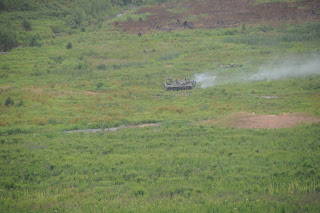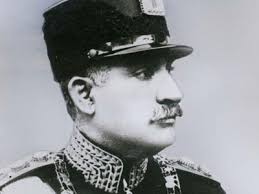I wrote a review for Books and Culture of Sweating the Metal by Alex Duncan, Chinook Pilot in Afghanistan:
NEIL GUSSMAN
Sweating the Metal
Happy 50th Anniversary to the Chinook helicopter.Happy 50th Anniversary to the Chinook helicopter! This month, the huge, twin-rotor aircraft capable of carrying 40 soldiers and tons of cargo marks 50 years of service in the US military and in the air forces of more than two dozen other nations.
In 2011, the Chinook was in the news around the world. On May 2, the Chinook helicopter on the mission to kill Osama Bin Laden extracted the Navy Seal team as well as the crew of the ill-fated Blackhawk that crashed on landing at the Bin Laden compound. Bin Laden's body left Pakistan on the Chinook. The Chinook's size made it possible to complete the mission when the primary Blackhawk was down.
In August, that same colossal size (a full 99 feet from the front of the forward rotor to the back of the aft rotor) made a Chinook a big enough target that a single Taliban gunner with a Rocket Propelled Grenade (RPG) could bring the copter down. More than 30 Navy SEALs, Afghan commandos, and crewmembers were onboard for a night mission. All were killed.
But neither of these incidents is typical of the tough-under-fire utility of this hulking helicopter. For a rousing description of flying a Chinook in combat, look no further than Sweating the Metal by Chinook pilot Alex Duncan. Written at a breathless pace, the book shifts easily from technical descriptions of aircraft and procedures to clipped dialogue and action-packed combat narrative.
Although Duncan never goes three pages without using the f-word, he does spare his audience transcription of the speech of British soldiers. Both when I served in Germany in the 1970s and in Iraq in 2009, I trained with British troops. Their ability to cram properly pronounced foul language into every sentence surprised even the most foul-mouthed American soldiers.
A British sergeant leading an IED (Improvised Explosive Device) briefing in Iraq pronounced the "ing" clearly when using the f-word as a verbal adjective for each of the 30 IEDs he showed us. Duncan uses the f-word five times in one three-line paragraph to convey the alarm of one of his crewmembers who landed under fire in the wrong place, but for the most part he limits himself to a few per page. When I try to describe life in the army, particularly the 77-man tent I lived in for three weeks in Kuwait, I find it is a tricky balance to convey the profane speech without coming near transcription. Duncan does a good f-ing job.
Another balance Duncan tries to strike on every page describing combat is the use of acronyms. Soldiers in general and aircrew in particular have an opaque language of acronyms that is real speech to them. I currently serve in a Combat Aviation Brigade, and I find pilot jargon beyond incomprehensible when they speak to each other. Readers who have never flown in a military aircraft will be turning repeatedly to the seven-page glossary at the end of the book. Since some of Duncan's jargon is peculiar to the RAF, I found myself looking up LCJ (Load Carrying Jacket), CAS (Chief of Air Staff or Close Air Support depending on context), and a few others.
Duncan writes in the first person. So, when he is angry the reader can feel the warm temperature of the page. In Chapter 14 (of 40), he talks about waiting for a seat on a flight home. This is one of the chapters with high f-word density, including spelling out the acronym REMF. I will leave it to the reader to look on page 105 or Google it. The chapter is about the hassles of combat soldiers when they are marooned on a large base with non-combat soldiers.
The dispute dates back at least as far as the era of King David, who is recorded in Scripture as commanding that those who guard the baggage get a share of the spoils along with the frontline troops. Duncan clearly would cut the REMFs out of the distribution of any benefits. Yet he makes clear in this chapter that the soldiers he disparages live through daily mortar and rocket attacks, eat dust, and regularly deal with the contempt of people like him.
Many of the missions Duncan flies are what the US Army would call MEDEVAC. The Brits have their own acronyms. Several chapters describe rescuing wounded soldiers under direct fire. I read one of these chapters to my 12-year-old sons. They were caught up in the excitement, but it was a lot of work for me translating those acronyms into something the boys could understand, not to mention bowdlerizing the text and substituting exclamations.
When Duncan mentioned weapons, the boys' questions led me into a ten-minute digression on the M60 machine gun mounted on the Chinook's tail ramp and the miniguns mounted in the doors. They were so excited with what tracers are and how they look when they arc to the ground that we barely got back to the story. They especially liked the British nickname for the 3000-round-per-minute miniguns: Crowd Pleasers, the Brits call them. The next night we went back to Tom Sawyer.
Duncan is very good at technical explanations. Little by little, the reader learns technical details of the controls and instruments of the Chinook helicopter. Page 135, for example, features an excellent description of Night Vision Goggles (always called NVGs by the crews). We also learn chapter-by-chapter about life at home in Britain as well as on the big base at Kandahar and on the forward bases. One cumulative effect of Duncan's descriptions was to make me jealous of British deployment. Tours for US soldiers are one year long. British flight crews spend two months in country. Ground troops, six months.
In the course of the story, the reader gets a sense of how pervasive American popular culture is in the life of British soldiers—and really for all English-speaking soldiers. He says "Let's get out of Dodge" over the intercom, knowing the crew will understand his intent. Same with "Captain Obvious" and many other references to American movies, American songs, and so on, no doubt including some that I am too old to recognize.
And speaking of popular culture, Duncan mentions the DVDs that are everyone's favorite at their base on Camp Bastion: The HBO Series Band of Brothers. Soldiers can be as cynical about war films as doctors are about hospital dramas, but I have never heard a bad word about Band of Brothers. The men I served with in Iraq and Duncan's mates all at some level want to follow Major Dick Winters from Normandy to Berchtesgaden in World War II.
While these descriptions gave me a real feeling for Duncan's life, they helped to make the book too long. The climactic scene when Duncan's Chinook is hit by an RPG begins almost 220 pages into this 300-page book. If the book were shorter by a third, tightened by a ruthless editor, it would be even better.
That said, I would happily recommend Sweating the Metal to anyone who wants to get a good sense of the war in Afghanistan and what it's like to fly the biggest helicopter in the Army inventory.
Neil Gussman is communications manager at the Chemical Heritage Foundation. He blogs atarmynow.blogspot.com.








































